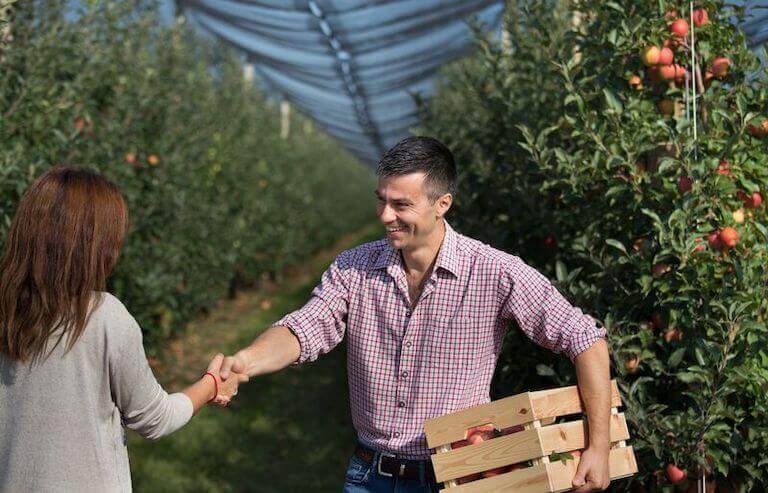They’re the first generation to grow up with widely available internet access and enter their teenage years with smartphones at their fingertips. The generation that asks questions to Google or Siri instead of their parents or neighbors. The generation that grew up in an increasingly diverse United States, with new brands and products reaching them via both in-person and digital marketing.
Who are they? Generation Z—individuals born between 1997 and 2012. While some of the younger members of this generation may just be developing their palettes, the eldest Gen Zers are making a big impact on culinary trends by sharing their favorite foods on TikTok, influencing their parents’ buying habits, and launching culinary brands of their own.
So whether you’re a Boomer, Gen X, Millennial, or “Zoomer”, it pays to know how one of the newest generations is shaping food trends, and how to incorporate Gen Z food trends into your culinary business.
A Growing Concern for the Environment
Most members of Gen Z heard the term “climate change” before they could walk or talk. As they grew to speak and then understand the world around them, they used their words to voice their concern for the environment.
A 2022 Food and Health survey conducted by the International Food Information Center (IFIC) found that 73% of Gen Z believes that their generation is more concerned with the environmental impact of their food choices than other generations. So what does this data point look like in everyday life?

Members of Gen Z are likely to seek out products that are environmentally friendly, whether that means paying a few more dollars for organic produce, seeking out carbon-neutral brands, or incorporating more plant-based meals into their diets.
This means that chefs and other culinary professionals could benefit from exploring not just how food tastes, but how it was grown or raised. Escoffier’s culinary school programs may allow students to gain first-hand experience with food production through their Farm to Table® Experience. During this experience, students can visit farms to get a taste of what it takes to bring food to the table. They may also have the opportunity to talk with farmers to better understand how to form relationships with producers and incorporate local ingredients into their meals.
“Farm to table means a lot to me. One of the huge deciding factors for me to choose Escoffier over other schools was the farm to table section available to us here. Studying farms in Colorado was something I decided was absolutely necessary for my education. I didn’t want to go somewhere if they didn’t want to talk about it.”*
Kadie Sardo, Escoffier Culinary Arts Graduate
Gen Z’s concern for the environment also means that many of them are limiting their consumption of animal products. Even if members of Gen Z continue to enjoy steaks and cheeseburgers, many of them recognize that vegan diets produce lower greenhouse gas emissions and require less land than omnivorous diets, which leads to an interest in swapping a few meat-filled meals with vegan alternatives.
That means chefs can benefit from learning how to cook plant-based dishes that satisfy Gen Z’s interest in sustainability as well as their discerning palettes. One way to do this is by enrolling in a plant-based culinary school to explore the ins and outs of plant-based recipes, find optimal ingredient substitutions, and practice making dishes until they taste sublime.
Ditching the Store for Online
Since Gen Z often spend their school days researching via the internet rather than referencing encyclopedias, it may come as no surprise that they shop online. But what may surprise you is that 35% of Gen Z shop for groceries online at least once a week!
This focus on online shopping means digital marketing is more important than ever, which opens doors for food stylists, food photographers, and other food marketing professionals.
While the IFIC survey didn’t ask participants about their prepared food purchases, online food delivery is predicted to grow in the coming years. That means restaurants are smart to consider designing a delivery-friendly menu and potentially partnering with food delivery apps.
A New Concern for Diet
Diet fads are nothing new. Every decade is marked by a new trend, whether that’s the grapefruit diet of the 1980s, Atkin’s diet of the 1990s, or the juice cleanses of the 2000s. However, Gen Z is bringing a new why to diet choices.
People have traditionally turned to restrictive or specific diets to lose weight, but Gen Z shows that the reasons behind an individual’s diet choices are often multifaceted. The IFIC Food and Health Survey reports that Gen Z is likely to choose specific diets in an effort to improve their energy, sleep, or mental health rather than to lose weight.
This trend is also echoing through other generations. While 30% of survey participants said they chose specific diets in order to lose or maintain weight, 29% said they aimed to improve digestive health and 28% hoped their diet choices would lead to a healthier cardiovascular system.

Gen Z is also showing less interest in alcohol than previous generations. Reports have found that Gen Z is drinking less than Millenials did when they were their age. When they do choose to drink alcohol, they often reach for liquor rather than beer or wine. This means that more companies are churning out lower calorie, ready-to-drink cocktails, as well as non-alcoholic beverages like mocktails and non-alcoholic beers. It also means that consumers are increasingly expecting these options at restaurants.
Since Gen Z is not only interested in how their diet will impact their weight but also their overall health, culinary professionals may benefit from learning more about nutrition and wellness. Escoffier’s holistic nutrition and wellness programs can give students the opportunity to dive into topics including nutrition, specialized diets, and working with clients.
Explore How to Incorporate Gen Z Food Trends
It’s hard to dispute Gen Z’s impact on the culinary industry. However, they’re not the only ones influencing consumer demands and trends. Other influential factors include media, current events, and popular chefs.
No matter the impetus behind current food trends, chefs should know how to incorporate these trends into their cooking.
Culinary school can provide students with the opportunity to explore culinary fundamentals and connect with other people who eat, breathe, and sleep food! This combination can give students both the skills and knowledge they need to cook classic recipes and play with new dishes as well as stay on top of the latest trends.
Check out these articles next:
- Is Eating a Plant-Based Diet Healthy?
- 5 Best Cooking Shows According to Professional Chefs
- American Regional Cuisine: The Best Dishes from Around the Country
This article was originally published on January 8, 2018, and has since been updated.
*Information may not reflect every student’s experience. Results and outcomes may be based on several factors, such as geographical region or previous experience.

